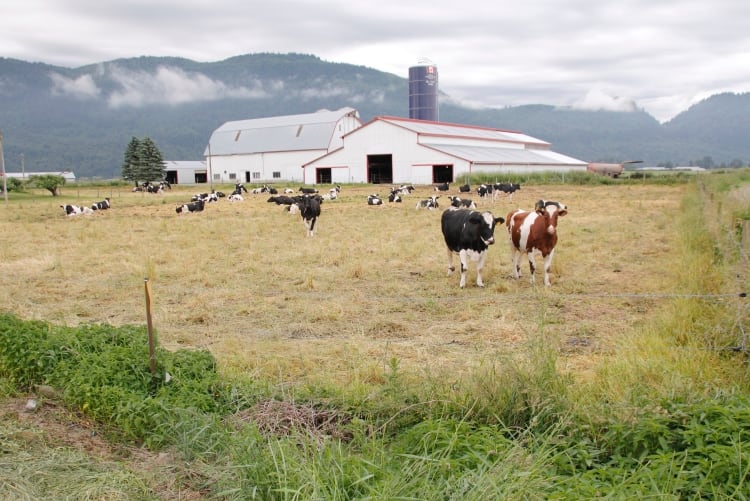More than 1,100 farms, 15,000 hectares and 2.5m livestock from the Sumas Prairie in Abbotsford to Merritt and Princeton were impacted by the floods.
Federal Minister of Agriculture and Agri-Food, Marie-Claude Bibeau and British Columbia Agriculture Minister Lana Popham announced the Canada-BC Flood Recovery for Food Security Program, which will be delivered by the Government of British Columbia and will leverage the federal government's AgriRecovery Framework and Disaster Financial Assistance Arrangements (DFAA).
Popham said the November flooding was the most impactful disaster ever in the province, resulting in profound losses for many B.C. farmers and food producers.
“We're responding with a program that delivers the greatest amount of support of its kind in B.C.'s history. We've worked closely with farmers and farming organizations to make sure we have a comprehensive response that will help them get their farms back in production, and continue our collective efforts to build a resilient food system and economy in B.C.," Popham said.
The Canada-BC Flood Recovery Program for Food Security will help farmers who have incurred extraordinary expenses from uninsurable damages such as: clean-up, repair and restoration of land, barns and animal shelter, water and waste systems; returning flood impacted land and buildings to a safe environment for agricultural production; repair of uninsurable essential farm infrastructure; reasonable repair of on-farm structures such as livestock containment fences, and the rental of temporary production facilities drainage ditches and riprap; animal welfare; replacement feed as well as livestock transportation, veterinary care and mortality disposal; and loss of perennial plants not raised for resale.
The response was designed following consultation with agricultural organizations and individual farmers in the different disaster areas.
The governments of Canada and British Columbia have also established a committee of federal and provincial ministers who are working together and with Indigenous leadership to guide immediate and ongoing support to British Columbia families, businesses, and communities affected by the extreme weather events.
Farmers who have already undertaken any work are advised to keep their receipts, track the hours of work involved, and take pictures documenting the damage and repairs to support their application.
Program criteria and application forms are available at gov.bc.ca/agrifloodrecovery.
"The B.C. agricultural community has pulled together and demonstrated its strength and determination in the face of devastating floods. There is still a long way to go, but the Government of Canada will continue to work with the Government of British Columbia to support our farmers. We are here to help them rebuild so they can quickly get back to doing what they do best: producing high-quality food for Canadians," said The Honourable Marie-Claude Bibeau, Federal Minister of Agriculture and Agri-Food.
Jeremy Dunn, general manager of BC Dairy, said, "On behalf of our members, BC Dairy is pleased to hear the announcement today [February 7], and wishes to thank Minister Popham and her team, as well as Minister Bibeau and the federal government, for their work to develop a comprehensive recovery package to assist farmers impacted by the floods. We know that there will be more engagement to come, as there continues to be many months of rebuilding ahead. We look forward to continuing to work with the Ministry in the coming weeks and months to support our dairy producers."

